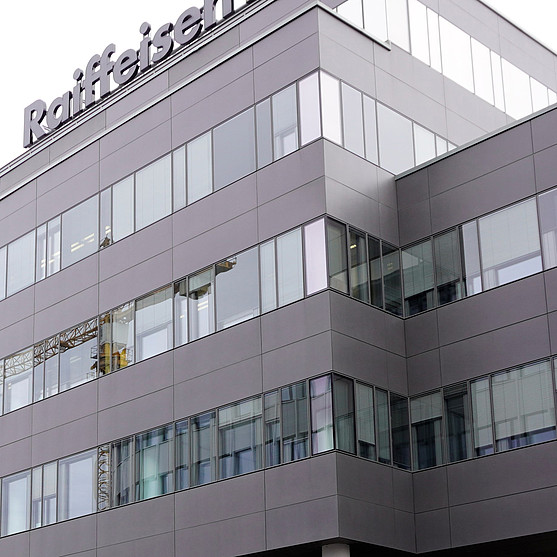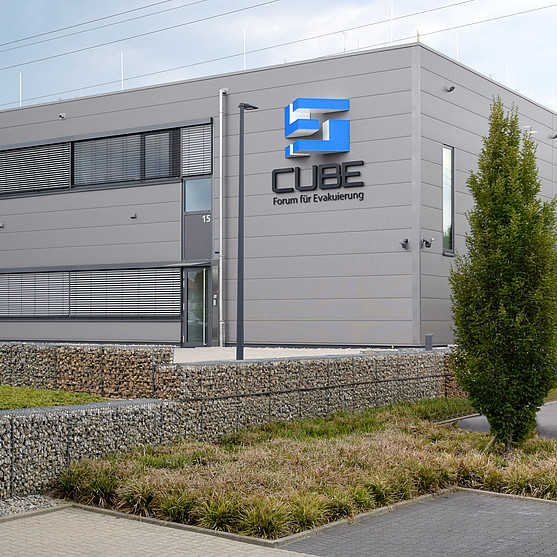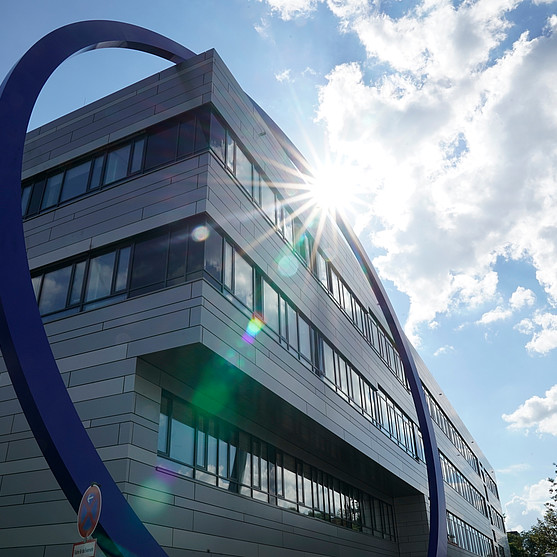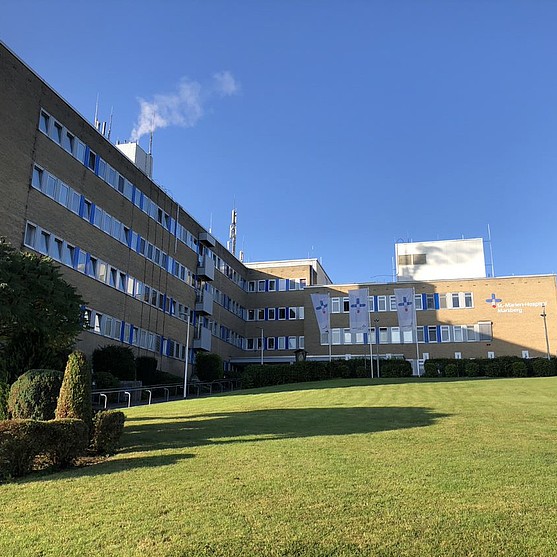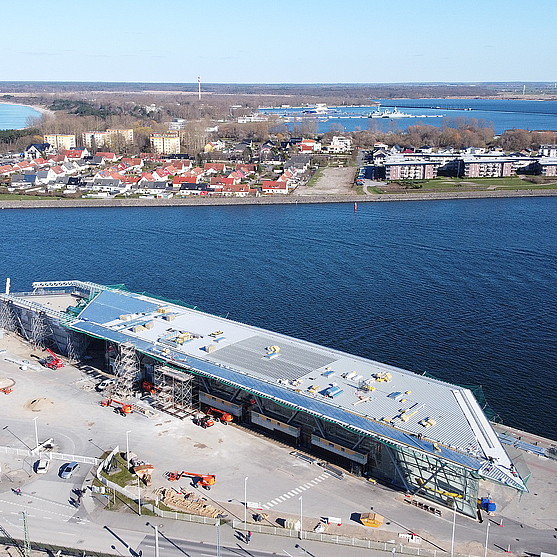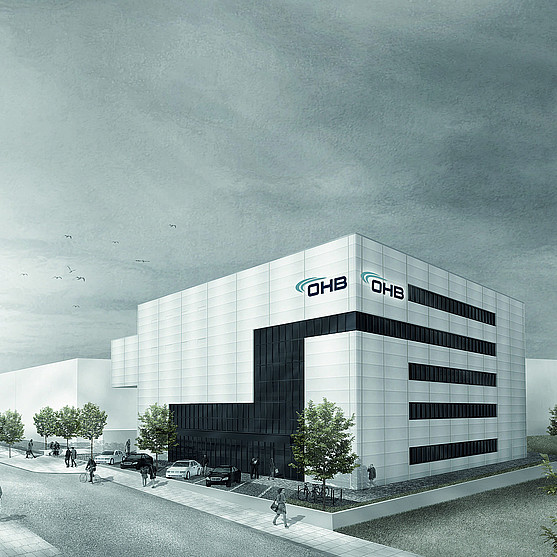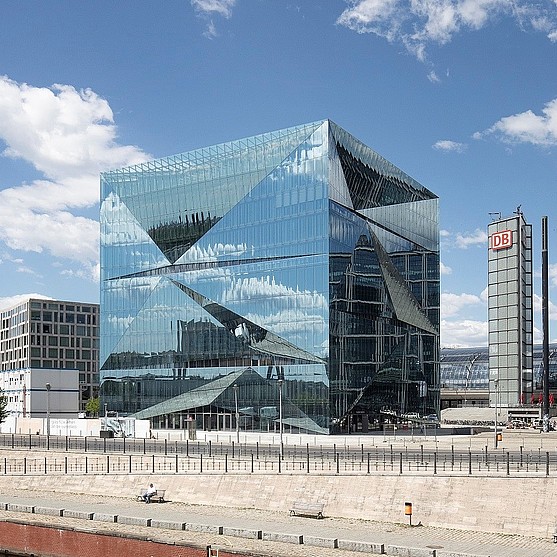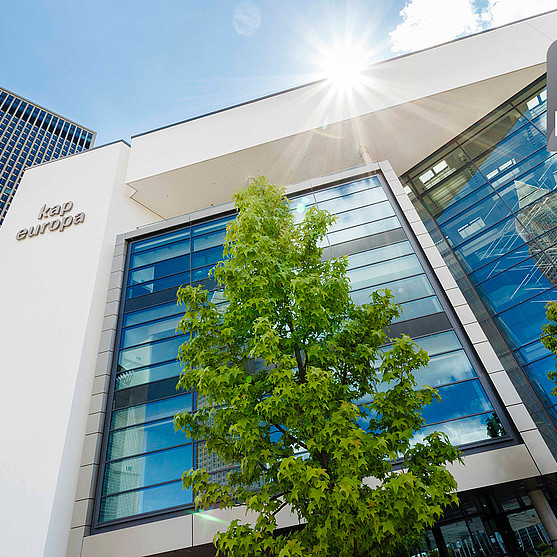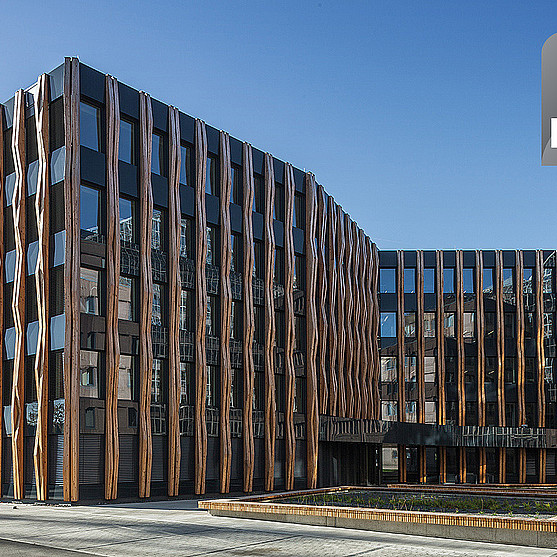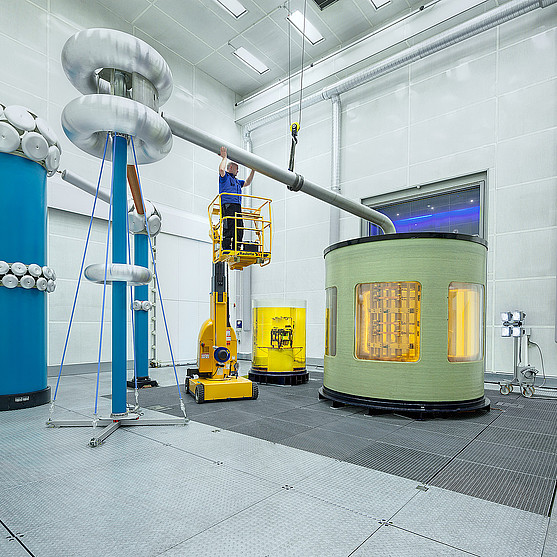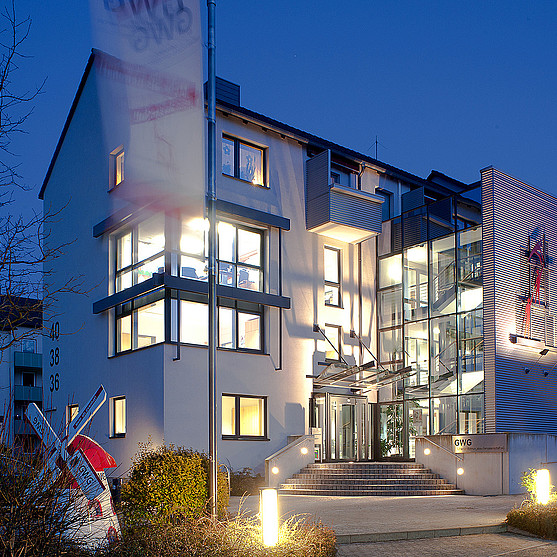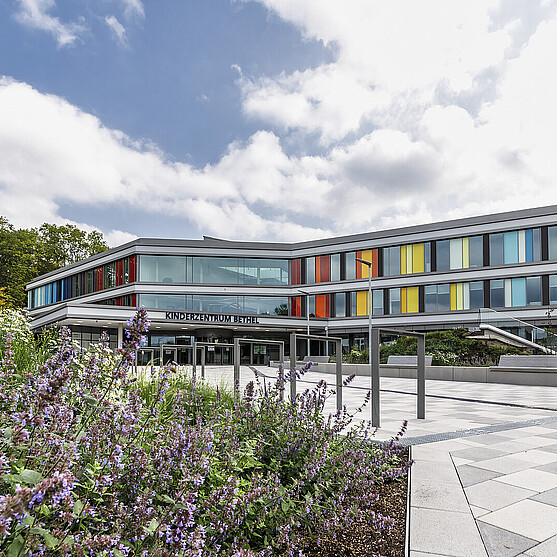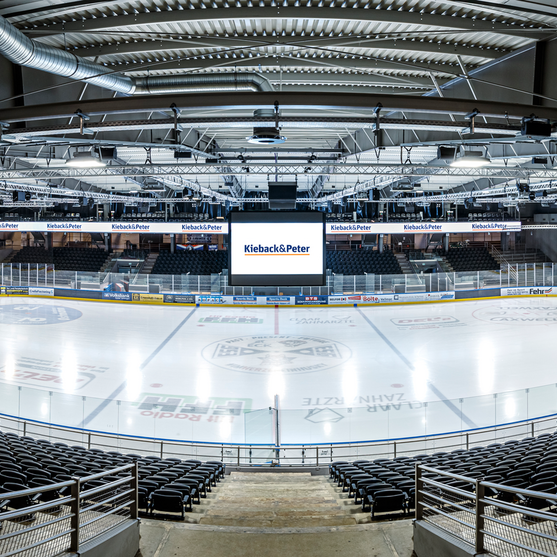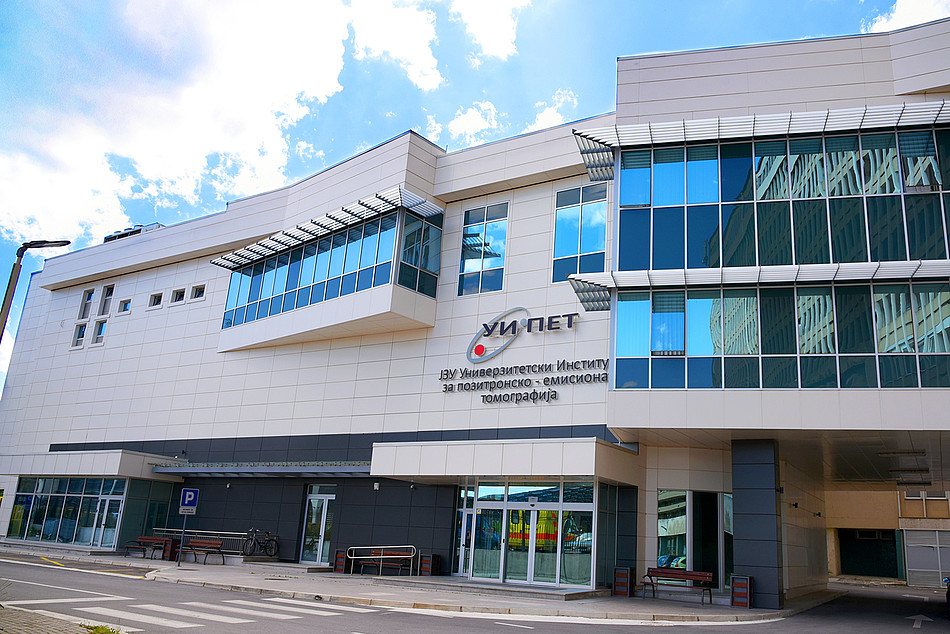
Nuclear medicine offers unique possibilities for diagnosing and treating severe illnesses. The Republic of Macedonia is the first country in the western Balkans to invest seriously in this highly specialized scientific field, having recently opened the Institute for Nuclear Pharmacy at PHI University in the capital of Skopje. The heart of the institute is the cyclotron, a nuclear particle accelerator buried behind cement walls several meters thick. Kieback&Peter planned and implemented the entire building automation system within the new, high-tech facility – in the patient, training, administration and commercial areas as well as in the highly shielded zone containing the radioactive positron source and the cleanrooms. The smart “Made in Germany” automation solutions are responsible for directing the cyclotron’s beams into the connected hot cells – where the nuclear pharmaceuticals are produced – among other tasks.
Modern Medicine and Smart Control in the New Institute
The Macedonian Ministry of Health sought a building automation system that was failsafe and low maintenance for its new 2,050 square meter institute. The client had particularly stringent requirements for the closed-loop control systems in the shielded nuclear area. The International Atomic Energy Agency also set forth various regulations. The overall concept submitted by Kieback&Peter and its partner company TCS Building Automation Dooel Skopje was a winner with the building contractor.
Part of the job was to combine the closed-loop control of the heating, ventilation and air conditioning with the open-loop control of the lighting and fire protection systems into an intelligent, digital control automation solution – and the automation experts at Kieback&Peter’s Macedonian partner were more than up to the task. The bigger challenge for the team, according to project manager Goran Velanoski, was to integrate the sensitive systems in the cleanroom and cyclotron areas and systems from third parties. The nuclear radiation source, in particular, required maximum reliability in the air supply and extraction systems. And because certain areas within the institute operate above or below atmospheric pressure and have strict requirements for air quality, the team had to undertake complex planning in advance of the project. Completing everything on time and precisely according to specifications was the final challenge.
Automation for the Advancement of Human Medicine
The heart of the automation solution in the University of Skopje’s new institute is the Neutrino BMS building management system. The software operates on a server and acts as the central monitoring and control unit. It communicates via cables/IP with the equipment in the building, the cyclotron and the cleanrooms. The operating states of all integrated plant components can be viewed and controlled if necessary using the intuitive graphical user interface, which can be accessed from a flatscreen computer on site or using the remote maintenance function over a secured Internet connection. At the request of the institute’s management, Kieback&Peter’s Macedonian team has handled the maintenance of the building automation system via secure remote access since the facility’s completion.
The Neutrino BMS central monitoring and control software operates upstream up of the on-site information centers: nine electrical cabinets, distributed throughout the institute, in which the actual physical switching operations take place. These cabinets contain powerful and flexible controllers – three DDC4200e units and one DDC420. They communicate with the Neutrino BMS, with each other and with field devices located at approximately 2,000 physical data points. The system also uses gateways which convert control commands from the DDCs for third-party devices, for example four cooling water units, a system for supplying technical gases, a VRV system (variable refrigerant volume) and electricity meters.
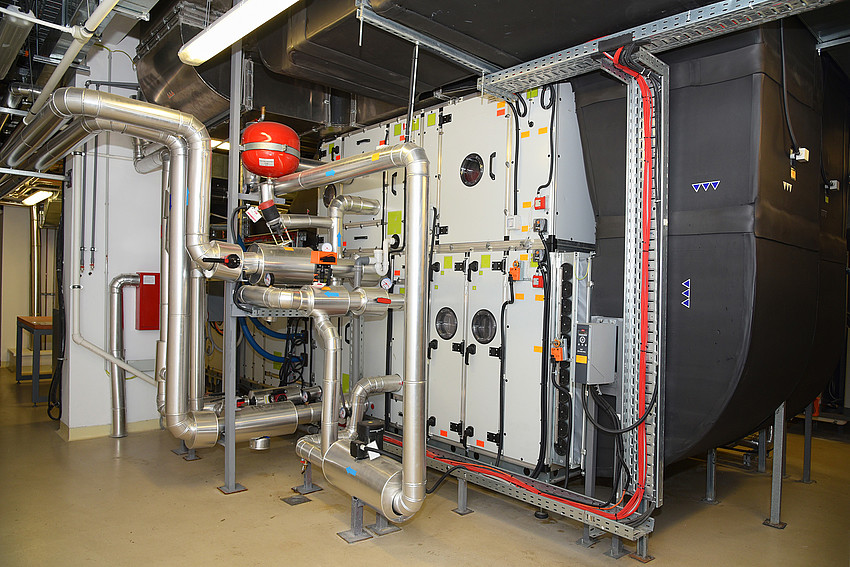
Safety Is the Top Priority
The Kieback&Peter field devices do the actual work of automating the buildings of the Institute for Nuclear Pharmacy in Skopje: Sensors provide constant information about physical values such as pressure, temperature or radioactive elements in the air and send digital measurements to the DDC automation stations. The actuators – for example damper actuators in the ventilation system or actuating levers in the heating system – put the DDCs’ control commands into action.
The result is an intelligent system that perfectly fulfills all the requirements from the first day of operation onward. For example, the automation solution ensures that the cyclotron can start its radiation source only if the access doors are securely locked and the necessary atmospheric pressure levels have been reached in the rooms in and upstream of the hot cells. In addition, the particle accelerator immediately shuts down and closes its exhaust ducts within the required time of 3.5 seconds if the air sampling unit detect certain radioactive levels in the extract air.
A Win for the Management and the Patients
The list of automatically controlled plant sections goes on and on, from the heating system with three cascading gas boilers – plus three 150 kilowatt electrical boilers as a fall-back system – to the failsafe cyclotron cooling with an emergency cooling system, all the way to the central corridor and exterior lighting. For patients of the Institute for Nuclear Pharmacy in Skopje, however, only one thing truly matters: They receive first-rate medical care in a top-quality facility – a quality that is made possible in part by Kieback&Peter. And the management of the institute can rejoice in the fact that the smart automation solution uses significantly less heating energy than conventional systems. In the end everyone wins . . . thanks to nuclear medicine and smart building automation.

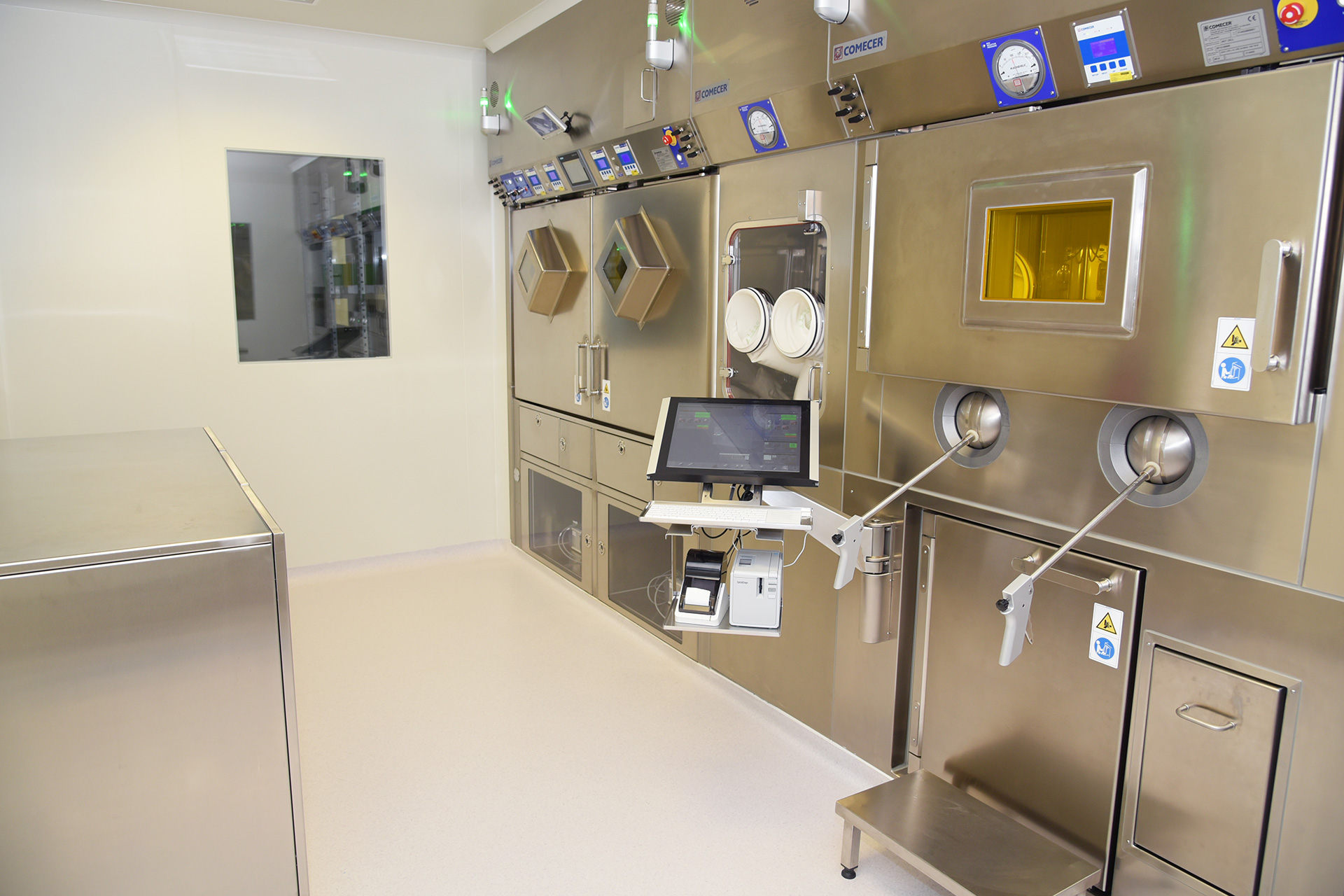
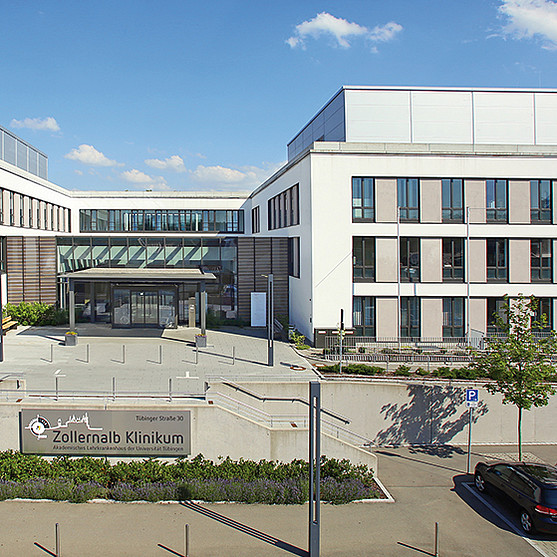

![[Translate to Englisch:] Elbdeck [Translate to Englisch:] Elbdeck Hamburg](/fileadmin/_processed_/9/b/csm_11_Deutschland_Hamburg_Elbdeck_3011f21c3c.jpg)
![[Translate to Englisch:] Qu4drans Paris [Translate to Englisch:] Qu4drans Paris](/fileadmin/_processed_/f/2/csm_Qu4drans_e315f9ef8d.jpg)
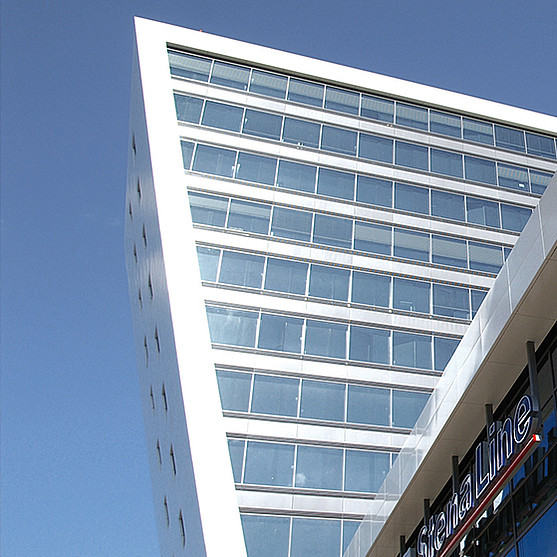
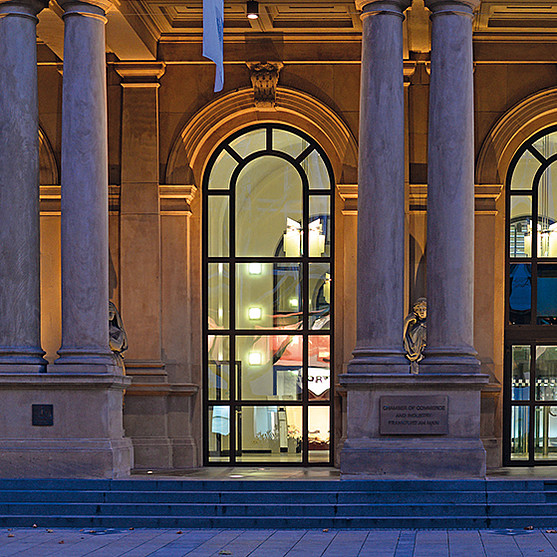
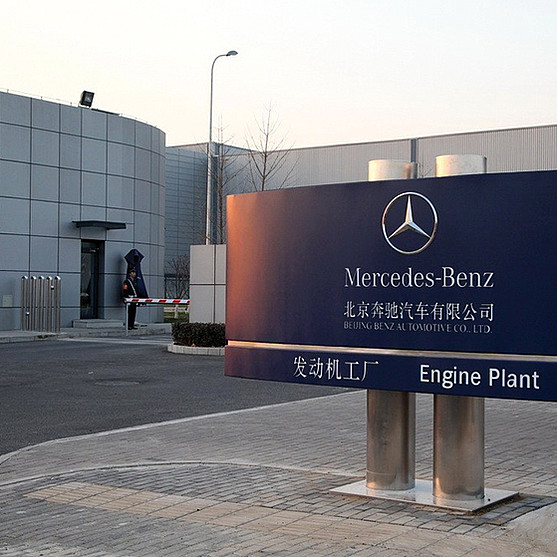
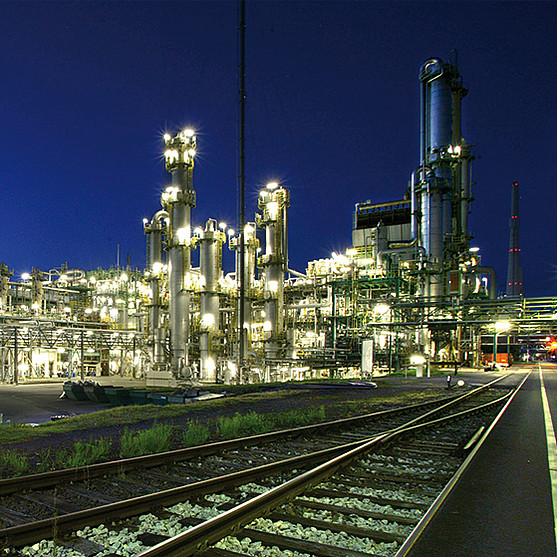
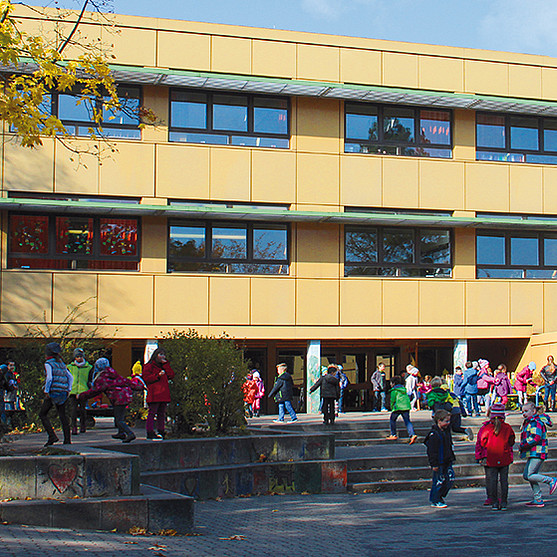
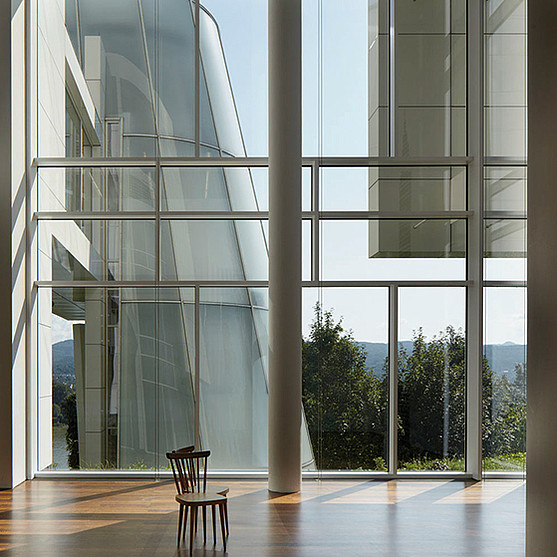
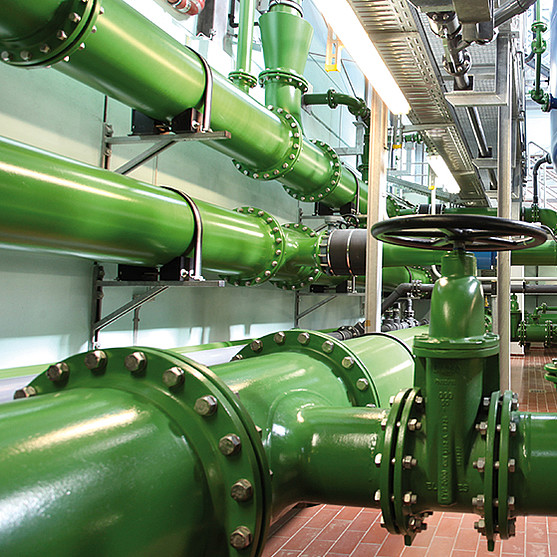
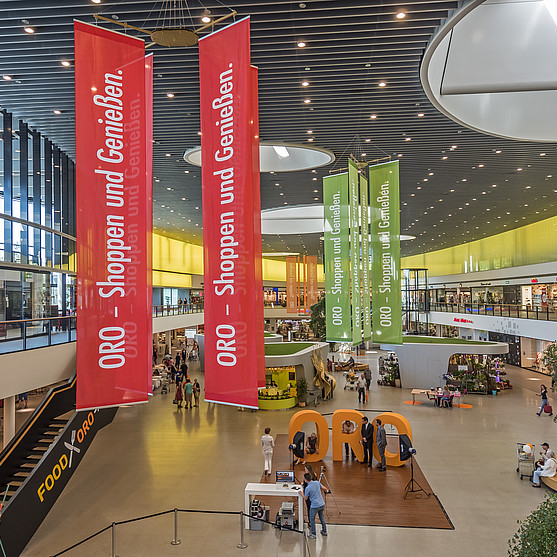
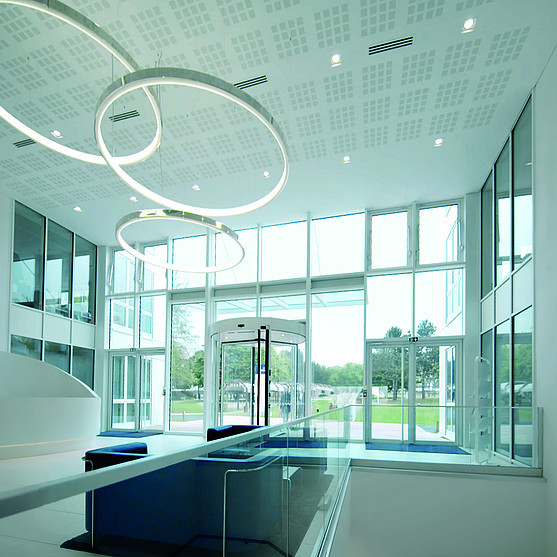


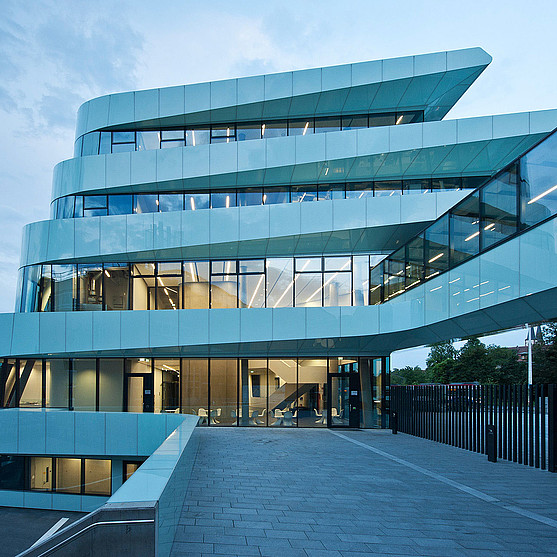
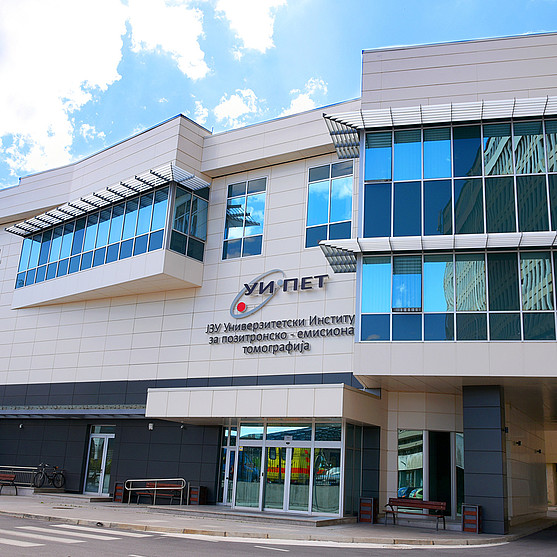
![[Translate to Englisch:] [Translate to Englisch:]](/fileadmin/_processed_/3/d/csm_L_T_Sporthaus_Osnabrueck_Indoor_kieback-peter_d47dda6a97.jpg)
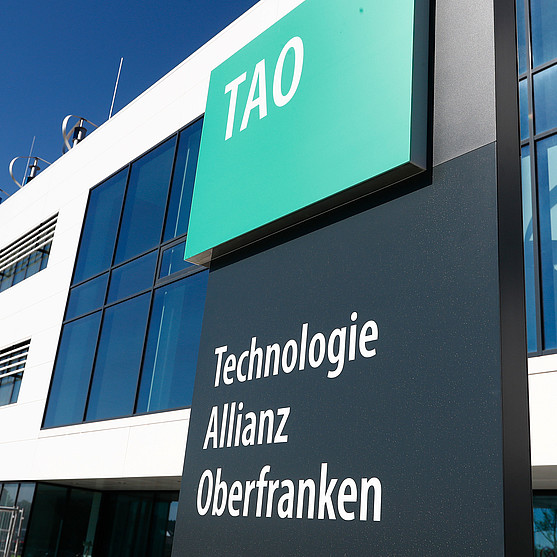
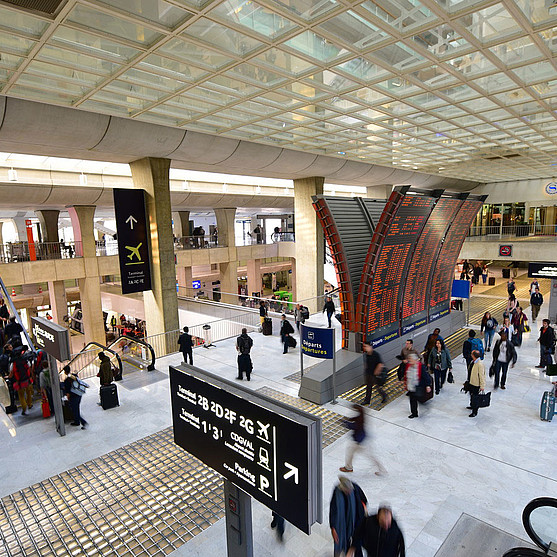
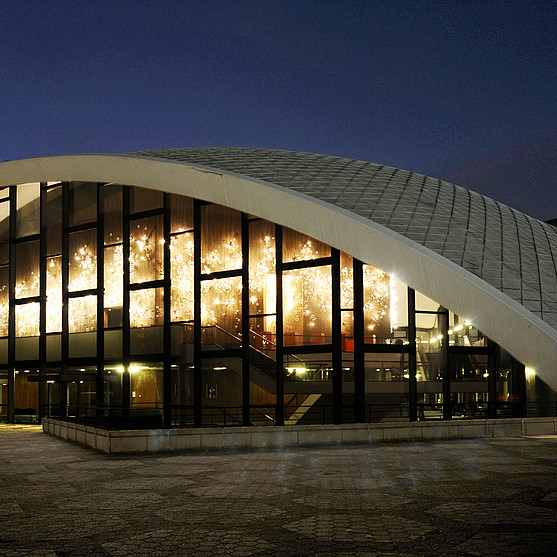
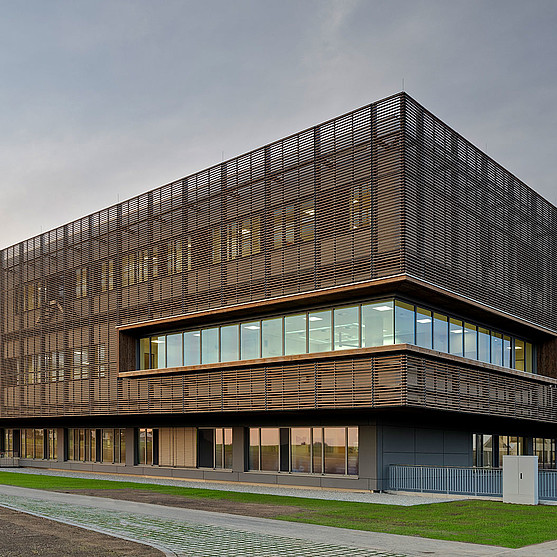
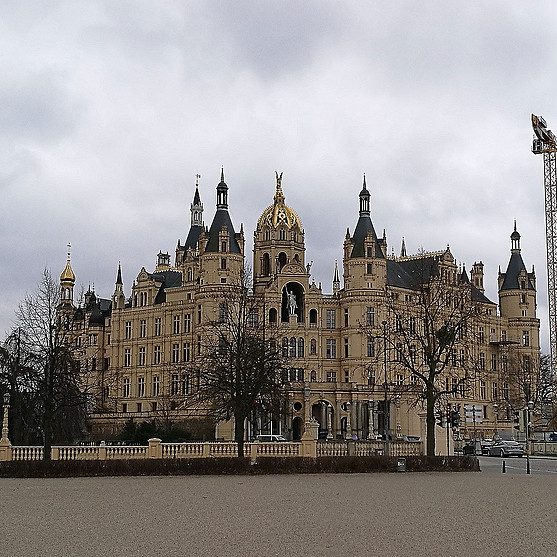
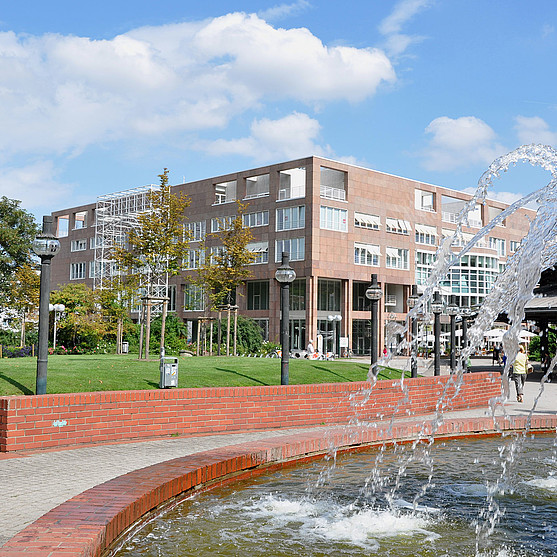
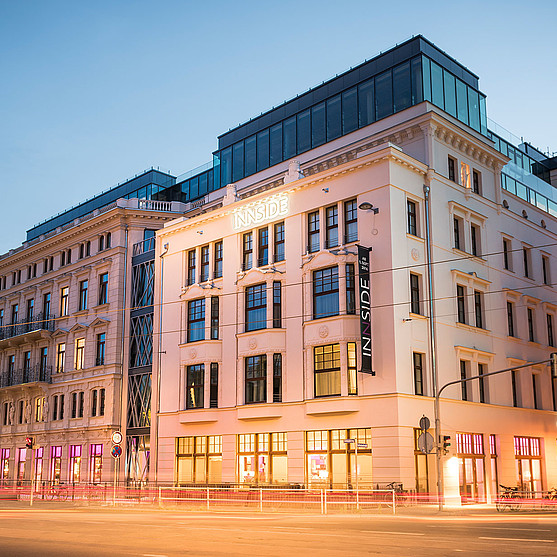
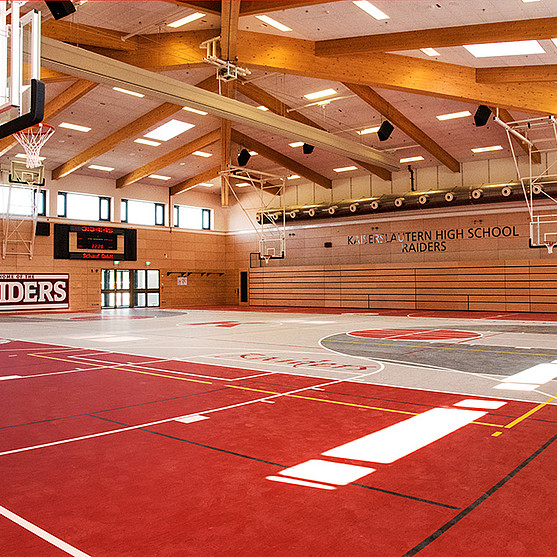
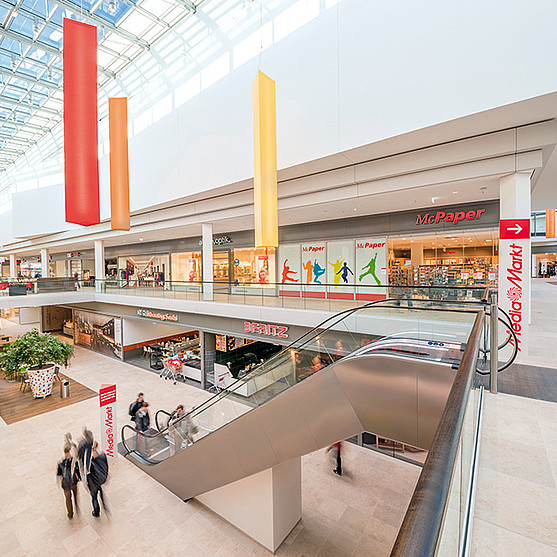
![[Translate to Englisch:] [Translate to Englisch:]](/fileadmin/_processed_/6/f/csm_flevo-krankenhaus-aussenansicht-kieback-peter_7f540b4b4f.jpg)
